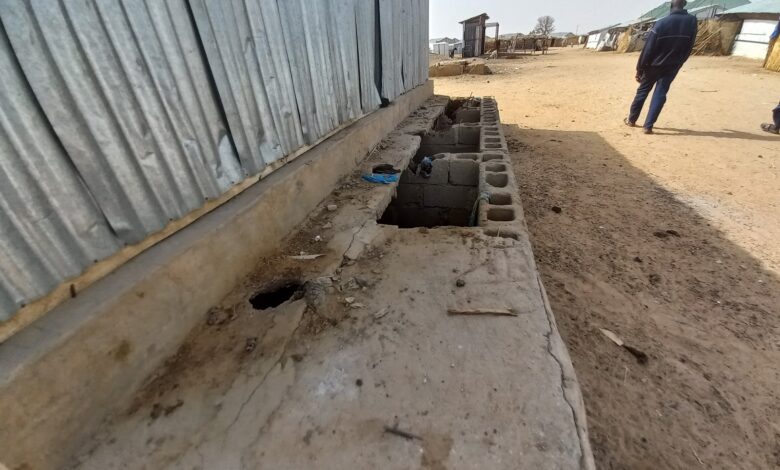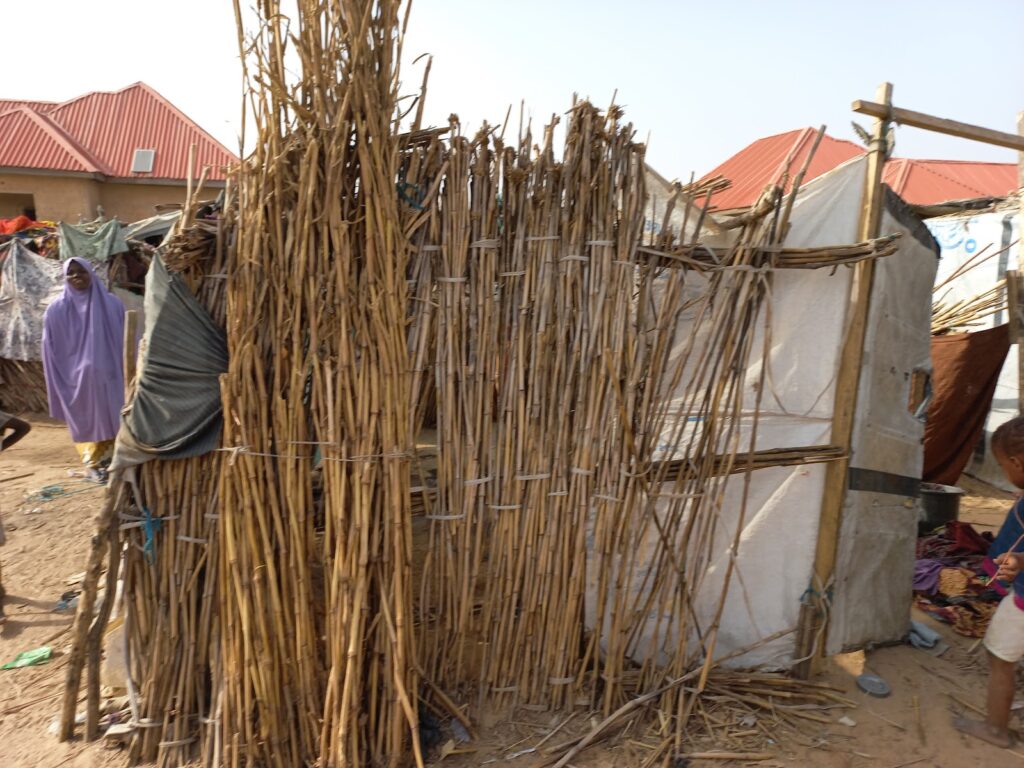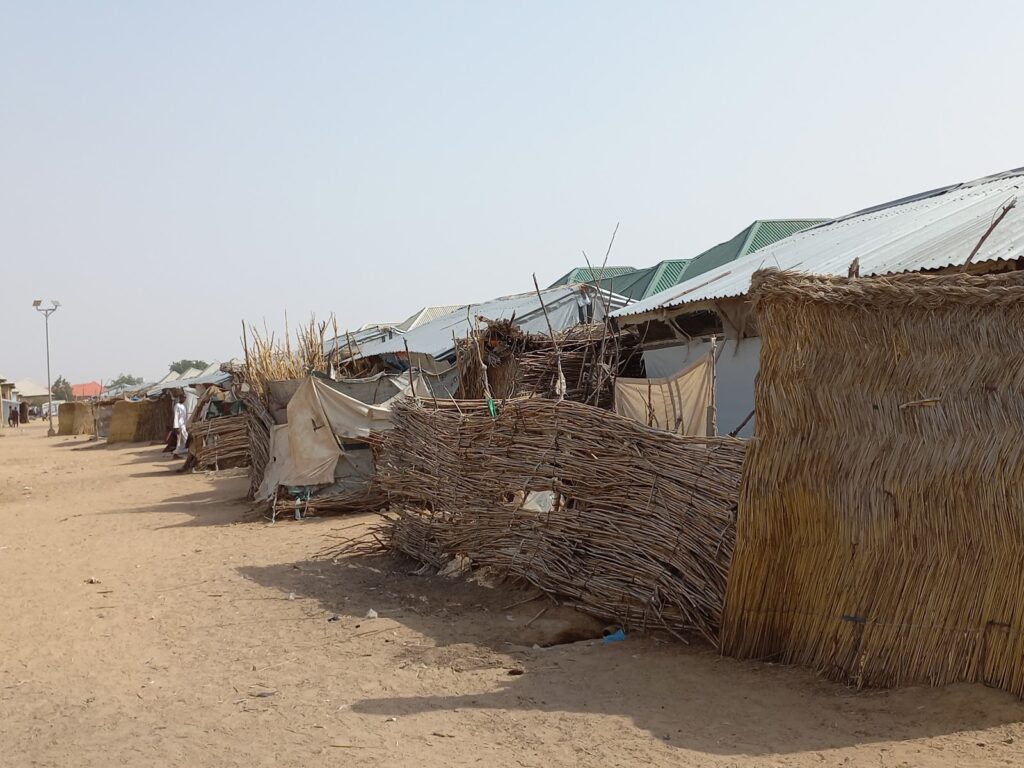Borno IDPs Vandalising Homes, Selling Building Materials To Feed
Hunger and diminishing access to means of sustenance are forcing many IDPs in Northeast Nigeria to adopt extreme measures like pulling down their roofs and breaking concrete to extract steel to sell in exchange for cash.

As hunger pang bites harder due to diminishing access to means of livelihood, Internally Displaced Persons (IDPs) in Borno State, Northeast Nigeria have resorted to different desperate measures, including pulling down the roofing sheets of their homes to sell for food.
HumAngle can report that many buildings and camp tents at the Gubio IDP camp have been vandalised because the dismantled building materials have been sold or bartered in exchange for food.
Idris Musa, a leader among the IDPs at Gubio camp, told HumAngle that his displaced colleagues have turned to vandalism out of desperation.
“If you look around the camp here you notice that the buildings are being vandalised, toilet slabs are being removed, so are window and door frames and even roofing sheets,” said Musa, as he conducted our reporter round the camp.
“People are hungry, very hungry, and it is causing us a lot of problems here in the camp. You would see a man either giving up his tented home space in exchange for food to feed his family, or breaking toilet slabs to extract the iron rods to sell them. Corrugated iron sheets used in building makeshift toilets have been removed overnight and sold off due to starvation.”

Buba Ali, a 37-year-old father of five, said after feeding on some wild grass which his wife cooked with salt, “I had no option than to trade away our tarpaulin tent for some cash.”
“I sold it off and used part of the money to buy woven grasses to erect a thatch hut, while we used the rest of the proceeds to buy some food items for the family,” he added.
“It is better to sleep in an uncomfortable tent than seeing the children going to bed with empty stomachs.”
Gubio IDP camp is located within an uncompleted housing estate on the outskirts of Maiduguri. At the time, IDPs were forced to flee their communities by Boko Haram, the housing project, a 250 2-bedroom flat, was at the advanced stage of completion.
Just like five other major uncompleted Housing Estates, the Gubio Road Housing estate was allocated for the IDPs to live in temporarily.

It is nearly eight years since the IDPs have been living in the uncompleted public property that has so far degenerated due to vandalism and zero maintenance culture.
Yuguda Saleh Vungas, Borno State’s Commissioner for Housing, told HumAngle that overhauling the abandoned housing estates after the IDPs had left “would be like rebuilding most of the structures from the scratch.”
Before Dec. 2021, there were 16 official IDP camps in Borno State and most of them were either located within the precincts of public schools or housing estates.
Support Our Journalism
There are millions of ordinary people affected by conflict in Africa whose stories are missing in the mainstream media. HumAngle is determined to tell those challenging and under-reported stories, hoping that the people impacted by these conflicts will find the safety and security they deserve.
To ensure that we continue to provide public service coverage, we have a small favour to ask you. We want you to be part of our journalistic endeavour by contributing a token to us.
Your donation will further promote a robust, free, and independent media.
Donate HereStay Closer To The Stories That Matter




